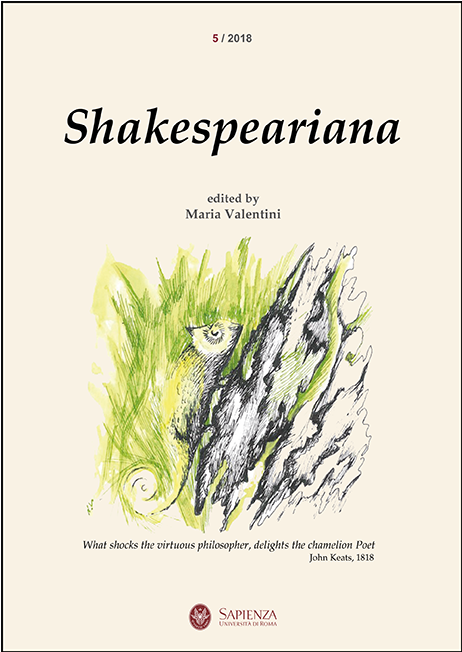Poisonous Language: Timon of Athens and the Scope of Invective
DOI:
https://doi.org/10.13133/2283-8759/14506Abstract
Recent research on Shakespeare’s Timon of Athens has addressed mainly the nexus between usury, gold and excess within an aristocratic system of patronage that was fostered in early modern England by the emerging paradigms of commercialism. While the issues of money and debt are certainly relevant, I would shift focus on the titular theme of misanthropy, by reflecting on vituperation as a key element in the rhetorical and dramatic economy of the play. Rhetorical invective, rooted in the tradition of argumentative exclamatio, was kept alive in late-medieval manuals of rhetoric and in the educational setting of Shakespeare’s time. Yet, by the second half of the sixteenth century, the scope of invective was being seriously challenged by Elizabethan and Jacobean legislation against libel. I submit that Timon of Athens should also be read as a theatrical response to this fraught rhetorical and political juncture. Its staging of unregulated invective is the dramatization of emotion, a radicalized instance of ecphonesis, the figure ‘of vehement affection or passion’, ill-fitted to the cultural priorities of efficiency and analytical thinking on the rise at the time.
Keywords: Shakespeare, Rhetoric, Vituperation, Ecphonesis, Late plays, Romance


